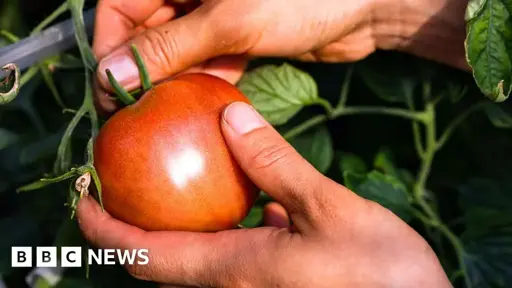- cross-posted to:
- world
- [email protected]
- cross-posted to:
- world
- [email protected]
As an addition on the topic:
Modern slavery in China according to the human rights organization Walk Free
Since 2018, evidence of forced labour of Uyghur and other Turkic and Muslim majority peoples has emerged in the Xinjiang Uyghur Autonomous Region (Uyghur Region) […] Forced labour imposed by private actors is also reported, in addition to forced marriage and organ trafficking, with vulnerability primarily driven by discriminatory government practices.
The 2023 Global Slavery Index (GSI) estimates that 5.8 million people were living in modern slavery in China on any given day in 2021 […] This estimate does not include figures on organ trafficking, which evidence indicates does occur in China.
Forced labour is exacted by the Chinese Communist Party (CCP) as a means of racial and religious discrimination; political coercion and education; and as punishment for holding views ideologically opposed to the state. It is reported alongside mass surveillance, political indoctrination, religious oppression, forced separation of families, forced sterilisation, torture, sexual violence, and arbitrary detention in so-called “re-education camps” within the Uyghur Region […]
Forced labour is exacted under the guise of vocational training and poverty alleviation – a scheme promulgated by the CCP to raise living standards in “ethnic areas.”
Globally, an estimated 50 million people were living in modern slavery on any given day in 2021. This is nearly one in every 150 people in the world. Walk Free writes:
Modern slavery is hidden in plain sight and is deeply intertwined with life in every corner of the world.
In other news, a business owner tried every tactic possible to provide the cheapest product and pocket the most profit.
Mamutjan, a Uyghur teacher who was imprisoned in 2015 for an irregularity in his travel documentation, says he was beaten for failing to meet the high tomato quotas expected of him.
“In a dark prison cell, there were chains hanging from the ceiling. They hung me up there and said ‘Why can’t you finish the job?’ They beat my buttocks really hard, hit me in the ribs. I still have marks.”
“Italian” as a mark of quality is useless anyway. And working conditions in the agrarian sector there are anything but praiseworthy either.
This is not about Italian tomatoes but Chinese. Working conditions in agriculture may be worse than in other sectors, but here we apparently deal with slave-like conditions in Chinese prison-factories. Just read my other comment in this thread or the whole article.
I also think that Italy delivers high quality products in a lot of industries, including in the food sector if I may say so. But this article is about China anyway in the first place.
I agree with you generally, but unfortunately even in Italy there are plenty of slave-like situations in agriculture. Just recently there has been the case of Satnam Singh, and many before in the tomato industry.
Yes, I agree. It’s far from being perfect anywhere. I’d just say we shouldn’t generalize. One thing we need is more transparency in our global supply chain I guess.
Unfortunately, this is Europe-wide and beyond. E.g. in Germany, you then have workers from countries such as Romania etc. Many farmers growing veggies can’t afford just paying local people doing the work, even if they wish. Unless people will begin valuing food more again and pay the actual price needed to cover the expences that situation won’t change, but I guess most would just go for cheaper products, spend the money on consumer goods, the next holiday, or simply don’t have enough themselves once the rent is paid.
Adding to that, being a farmer isn’t really a valued job in society. I mean just compare salaries of someone working in IT with someone working on a veggie farm. Says everything. Question is just which of both is more important to survive.
This is about products from China, produced with forced labour in China, wrongfully labeled as ‘Italian’.
And, yes, the conditions in the agri-sector might be bad, they must be improved, which is another reason why we need more transparency in supply chains.
Yeah, I read it. Inisghtful, I wasnt aware China was involved as much in food deliveries and I’m surprised they grow that amount of actual tomatoes and not tennis balls dipped in red paint.
Just wanted to add my thoughts about that Europe-Discussion because I think there’s no point in blaming other countries for something thats not running 100% at home.
I mean, don’t get me wrong, I do in no way argue that we can just easily compare labour conditions in Europe with those in China. But the system beneath is the same, and that was my point I guess. It’s slavery and exploitation. Difference is maybe the political environment and the degree of human rights.
This food delivery situation is already a huge problem in Europe with monocultures, diseases and climate change and it will get even worse next year, after the floods in Spain.
Absolutely agree that we need more transparency. We need more transparency in oh so much.
Sure, but all the products were marked as “Italian” so it’s dishonest product labelling
As an American, I demand American forced labor tomatoes!
https://www.themarshallproject.org/2024/02/03/food-prison-labor-walmart-target
It’s not just vegetable purees but fruits as well. Apple for example.
Tomatoes are a fruit
Did you know that Target, Walmart, Costco, whole foods, McDonald’s, Burger King, Victoria’s secret, JCPenney, Kmart, Coca-Cola, and many other US companies use forced labor to produce many US goods?
Oh, great.





